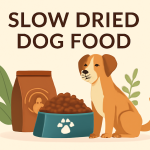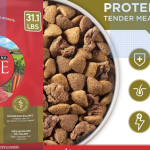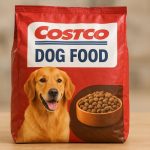Why You Should Not Totally Rely on Dog Food Advisor
When it comes to choosing the right food for your dog, the internet is filled with a wealth of advice and opinions. One of the most well-known resources for pet owners is Dog Food Advisor, a website that provides detailed reviews and ratings of dog food brands. While the website is popular and often trusted by pet owners, it’s important to understand the limitations and potential drawbacks of relying solely on its advice.
While Dog Food Advisor can be a helpful tool, it’s not always the definitive source for making the best decisions about your dog’s nutrition. The website uses a rating system that takes into account various factors such as ingredient quality and manufacturer reputation. However, these ratings may not always reflect the unique dietary needs of your individual dog. A one-size-fits-all approach is rarely ideal when it comes to pet health, and what works for one dog may not be suitable for another.
What Is Dog Food Advisor?
Dog Food Advisor is an online platform that offers reviews and ratings for thousands of dog food products. It’s designed to help dog owners navigate the often-overwhelming world of pet nutrition by providing clear, concise evaluations of dog food brands based on various criteria. Here’s a breakdown of what Dog Food Advisor offers:
- Product Reviews: The core feature of the website is its reviews of dog food brands. These reviews are generally based on the quality of ingredients, the reputation of the manufacturer, and the nutritional profile of the food.
- Rating System: The site uses a 5-star rating system to rank dog food brands. Products that meet the site’s quality standards are awarded higher ratings, while those that fall short are ranked lower.
- Ingredient Transparency: One of the standout features of Dog Food Advisor is its commitment to transparency. The site breaks down the ingredients of each product in detail, helping dog owners make more informed decisions.
- Dog Food Safety: Dog Food Advisor provides warnings about potentially harmful ingredients or controversial practices by certain manufacturers. This can be helpful for dog owners who want to ensure their pets are eating safe, healthy food.
Although Dog Food Advisor serves as a valuable resource for some dog owners, it’s important to be cautious and seek additional expert guidance before making nutritional decisions for your pet.
Dog Food Advisor Beliefs?
Dog Food Advisor holds strong opinions about dog food quality and how pet food should be evaluated. While the website offers some solid advice, there are several beliefs and philosophies the site upholds, some of which may be debatable or controversial. Here are a few core beliefs the platform operates on:
- The Importance of High-Quality Ingredients: The website places heavy emphasis on the importance of using high-quality, whole-food ingredients in dog food. They advocate for products that contain meat as the primary ingredient and avoid foods with fillers like corn, soy, and wheat.
- Transparency in Labeling: The site believes that pet food manufacturers should be transparent about their ingredients and sourcing. Dog Food Advisor is known for its in-depth ingredient breakdowns, which help consumers avoid foods with questionable ingredients.
- Grain-Free vs. Grain-Inclusive Debate: One of the site’s key stances is that grain-free dog food can sometimes be problematic. While grain-free diets have gained popularity, Dog Food Advisor cautions that such diets may not always be necessary and may pose health risks, especially in relation to heart disease.
- Avoiding Artificial Additives: Dog Food Advisor has a clear stance against artificial colors, flavors, and preservatives in dog food. Their belief is that these additives have no place in high-quality pet food and could have adverse effects on a dog’s health.
Dog Food Advisor Defies Veterinary Nutritionists
While Dog Food Advisor is widely respected by dog owners, some of its recommendations have raised eyebrows among veterinary nutritionists. There are several points of contention between the website’s advice and the guidance of experts in animal nutrition. Here are a few areas where Dog Food Advisor’s beliefs and recommendations might clash with the views of veterinary professionals:
- Grain-Free Diets: Dog Food Advisor has warned against the potential dangers of grain-free diets, especially due to concerns about dilated cardiomyopathy (DCM). However, some veterinary nutritionists argue that grain-free diets, when formulated correctly, can be perfectly safe and nutritionally sound for dogs.
- Rating Systems: Veterinary nutritionists often stress that the nutritional needs of dogs are complex and individualized, depending on breed, size, age, and health conditions. The Dog Food Advisor rating system is based primarily on ingredient quality and brand reputation, which may not always address the nuanced needs of all dogs.
- Formulation Concerns: Many veterinary experts emphasize the importance of a dog food’s overall nutritional profile, including the proper balance of macronutrients like protein, fat, and carbohydrates. Dog Food Advisor tends to focus heavily on ingredient quality, which may lead some users to overlook other essential factors.
- No Comprehensive Scientific Evaluation: Unlike veterinary professionals, Dog Food Advisor does not have the expertise or resources to perform comprehensive scientific evaluations of every product. Nutritionists and veterinary experts argue that evaluating dog food requires in-depth knowledge of canine physiology and health, which may not always align with the site’s evaluation methodology.
Prepare for a Career as a Dog Food Advisor
If you have a passion for animal nutrition and a keen interest in the pet food industry, becoming a Dog Food Advisor could be a rewarding career path. While Dog Food Advisor itself is a website and not a formal career program, you can gain relevant skills and experience by focusing on a few key areas:
- Educational Background: Pursuing a degree in animal nutrition, veterinary science, or a related field will provide you with the necessary foundation to advise dog owners on proper nutrition.
- Understanding Dog Food Ingredients: As a Dog Food Advisor, you will need to develop an in-depth knowledge of dog food ingredients, including which ingredients are beneficial and which ones are harmful to dogs.
- Staying Updated on Pet Food Trends: The pet food industry is constantly evolving, and staying informed about the latest trends and research will make you a valuable resource to dog owners.
- Certifications and Training: To enhance your credibility, you might consider obtaining certifications from professional bodies like the American College of Veterinary Nutrition (ACVN) or the Pet Food Institute (PFI).
How to Stop Dogs From Pawing and Scratching People?
Many dog owners experience frustration when their dogs paw or scratch at them, especially when trying to get attention or interact. Here are a few ways to stop your dog from pawing and scratching:
- Positive Reinforcement: Reward your dog for using polite behavior, like sitting or laying down, rather than pawing at you.
- Training Commands: Teach your dog basic commands like “stop” or “no paw” to discourage unwanted behavior.
- Distraction Techniques: Redirect your dog’s energy by offering a toy or another activity that can keep them engaged.
- Professional Help: If the behavior persists, consider hiring a dog trainer to address the issue.
How to Become a Dog Trainer: From Certification to Apprenticeship
Becoming a dog trainer is a fulfilling career for those who love animals. Here’s how you can get started:
- Obtain Certification: While formal certification isn’t always required, it can give you a competitive edge. Look for programs accredited by the Certification Council for Professional Dog Trainers (CCPDT).
- Learn the Basics: Before you can train dogs, you’ll need to understand canine behavior, communication, and basic obedience training.
- Hands-On Experience: Apprenticeships with experienced dog trainers are crucial for gaining practical skills.
- Stay Updated: Dog training methods evolve, so it’s important to continue learning through workshops, conferences, and new research in the field of canine behavior.
Hypoglycemia in Dogs-Full Guide
Hypoglycemia, or low blood sugar, can be dangerous for dogs if not addressed promptly. Here’s what you need to know:
- Symptoms: Signs of hypoglycemia in dogs include weakness, lethargy, tremors, confusion, and seizures.
- Causes: It can be caused by inadequate feeding, particularly in puppies, dogs with diabetes, or those with liver problems.
- Treatment: Immediate treatment may involve giving your dog a glucose solution or syrup. Severe cases require veterinary intervention.
- Prevention: Consistent, regular feeding with a balanced diet is crucial to prevent hypoglycemia.
Suggested Companies
Here are some companies that offer high-quality dog food products:
- Blue Buffalo – Known for their natural ingredients and focus on holistic nutrition.
- Hill’s Science Diet – Recommended by veterinarians for its balanced, science-backed nutrition.
- Orijen – Premium, high-protein food with fresh, regional ingredients.
- Royal Canin – Specializes in breed-specific diets tailored to meet particular health needs.
What You’ll Learn
By visiting Dog Food Advisor, you’ll gain insights into:
- The quality of ingredients in dog food.
- Which brands meet the highest nutritional standards.
- How to evaluate different dog food products.
- The pros and cons of grain-free diets.
Your Privacy
Your privacy is paramount, and Dog Food Advisor commits to protecting your personal data. The website is transparent about its data collection practices and follows standard industry protocols to ensure the security of your information.
A GREAT Resource for Dog Owners
Dog Food Advisor is widely regarded as an invaluable resource for dog owners who want to make informed decisions about their pets’ nutrition. Whether you’re a first-time dog owner or someone with years of experience, the website provides an accessible and thorough guide to understanding dog food ingredients, manufacturer quality, and nutritional needs. From reviews of the top dog food brands to detailed breakdowns of what goes into your dog’s bowl, the site ensures that pet owners are equipped with the knowledge they need to keep their dogs healthy and happy.
A GREAT Resource for Dog Owners
Dog owners who prioritize their pets’ health and well-being will find Dog Food Advisor to be an indispensable tool. With its user-friendly interface, expert insights, and detailed product evaluations, this website helps pet parents make well-informed decisions about their dog’s diet. By comparing different food brands, understanding ingredient lists, and learning about potential hazards, dog owners can confidently choose the best food options for their dogs, knowing that every piece of information is backed by solid research and analysis.
I Trust This Website Implicitly
Many dog owners swear by Dog Food Advisor, relying on it as their go-to guide for pet nutrition. The site’s comprehensive reviews, unbiased rankings, and transparency in ingredient sourcing have earned it the trust of a large community of dog lovers. If you’re looking for peace of mind about the food you’re giving your dog, many owners feel that they can trust Dog Food Advisor implicitly to provide them with the most accurate and useful information available.
I Feel Confident I’m Getting the Best…
After using Dog Food Advisor, many dog owners feel confident they’re providing the best possible food for their pets. The detailed product reviews and expert ratings give pet owners the assurance they need to make educated decisions, knowing that they’re prioritizing their dog’s health with high-quality ingredients and trustworthy brands. The site’s commitment to transparency and thoroughness helps dog owners cut through the noise and find the right food for their dogs’ specific needs, whether it’s for puppies, seniors, or dogs with special dietary requirements.
150+ Free Award-Winning Articles for New Dog Owners
One of the best features of Dog Food Advisor is its extensive library of free articles dedicated to educating new dog owners. With over 150 award-winning articles covering a wide range of topics—such as how to choose the best dog food, understanding common health issues, and tips for training—new pet parents can learn everything they need to know to give their dog a long, healthy, and happy life. These resources are especially helpful for those who are navigating the world of pet ownership for the first time.
FAQ:
FAQ 1: How accurate are the ratings on Dog Food Advisor?
Dog Food Advisor strives to provide accurate and unbiased reviews by evaluating ingredients, brand reputation, and nutritional analysis. However, it’s essential to remember that every dog is different, and individual needs may vary. The ratings serve as a helpful guideline, but consulting with your vet is always recommended for personalized advice.
FAQ 2: Is Dog Food Advisor a paid service?
No, Dog Food Advisor is completely free to use. All of its reviews, ratings, and articles are available at no cost. The site generates revenue through ads and affiliate links, which helps support its operations without charging users.
FAQ 3: Can I trust Dog Food Advisor’s ingredient analysis?
Yes, Dog Food Advisor carefully analyzes dog food ingredients based on established standards in pet nutrition. However, as with any review site, it’s a good idea to cross-reference this information with your veterinarian’s advice, especially if your dog has specific health concerns or dietary restrictions.
FAQ 4: How often does Dog Food Advisor update its reviews?
Dog Food Advisor regularly updates its reviews to reflect changes in dog food formulas, ingredient sourcing, and manufacturer practices. The site aims to provide the most current and accurate information to ensure pet owners have access to the latest data.
FAQ 5: Does Dog Food Advisor recommend prescription dog food?
Dog Food Advisor generally focuses on commercially available pet foods, including popular brands and high-quality options. Prescription dog food, which is often recommended by veterinarians for specific health issues, may not be covered in depth on the site. If your dog requires prescription food, it’s best to consult your vet directly for guidance.






